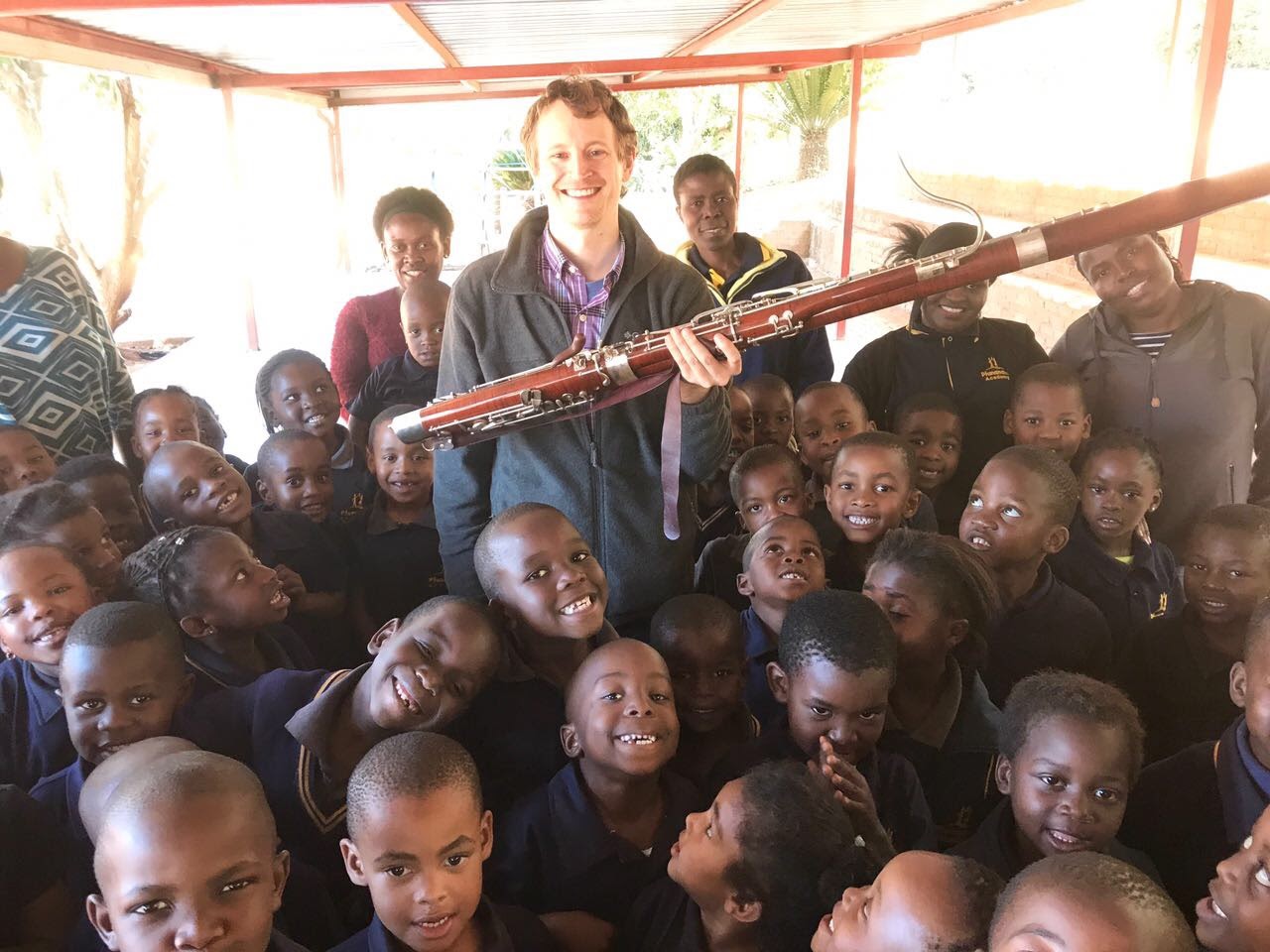Welcome Nathaniel Hale

Contrabassoonist Nathaniel Hale grew up in Madison, WI, and began his studies at the University of Wisconsin before moving to New York for his graduate studies at Juilliard. Nathaniel joins us for the 2018-19 season having played all over the world. We are very happy that the jet-setter has ended up in our bassoon section for the time being. We talked with Nathaniel earlier this week:
You have a lot of experience playing in various orchestras. Can you detail some of that for us?
I played for three years with the New World Symphony orchestra in Miami Beach. That was followed by two years with the Bergen Philharmonic Orchestra in Norway and then three more years with other orchestras in Scandinavia, including the northernmost opera company in the world, the Norrlands Opera, as well as the Norrköping Symphony, the Malmö Opera, and the Gothenburg Symphony. For the last decade I have been freelancing in the Chicago area with the Chicago Symphony, Lyric Opera, Chicago Philharmonic (Joffrey Ballet), and other orchestras in the area.
Why did you start playing bassoon?
In sixth grade we had the option of playing in the school band. I had seen pictures of a bassoon, and from an early age I had become a big fan of Peter and the Wolf, so when I got a chance to play in the band I wanted to play bassoon, which represents the grandfather in the piece. My best friend Marc Webb had also chosen to play bassoon, and the school had no more instruments, so I was stuck on clarinet for all of sixth grade until a bassoon was available.
Marc was actually the first person to teach me bassoon, and we were both pretty bad until we got private lessons in high school. I stuck with it, but he gave it up in college and has pursued a career as a major Hollywood film director instead.
Your bassoon has some history as well.
I play a Heckel bassoon made in 1943 in Germany. The metal on the instrument looks to be of a poor quality. There aren’t any shiny spots left. That’s probably because it was made during World War II, when good metals were requisitioned for the German military. Somehow, it was purchased by an American, and found its way to the US. Eventually it found its way into the hands of Jim Berkenstock, former principal bassoon player on the Chicago lyric opera.
But it’s also not a stranger to the ISO?
Definitely! When Jim sold it to me two years ago, he told me he had bought it from the Indianapolis Symphony’s very own [former principal bassoonist] Bob Bremel. So it’s a very old instrument, as far as bassoons go, with a lot of history! I love the sound it gets, and I like the antique way it looks too.
You also play contrabassoon. Is that instrument also just as interesting?
The contrabassoon I own was made by the Fox Bassoon Company in South Whitley, Indiana. It is the first of it’s kind made with an innovation fingering system designed by Arlen Fast of the New York Philharmonic. In fact, Arlen played this particular instrument in North Korea during their tour there about 15 years ago.
What is your favorite piece of music currently?
I heard the Chicago Symphony orchestra play a big piece by Maurice Ravel two or three years ago that was really fun. I don’t think I have ever had more fun listening to classical music. It’s called “L’Enfant et Les Sortillèges,” and the CSO performed it as a staged opera. The main character is a petulant, mischievous little boy and is performed by a soprano. The other characters are items found in a nursery. The libretto and musical writing are all very clever.
Your career has been so interesting and taken you to so many places, but you almost didn’t study bassoon?
I had the opportunity to go to Yale, but back then scholarships were not what they are today, so I went to the University of Wisconsin instead which was offering me a full-tuition scholarship in music. I didn’t think I was going to become a professional musician, and didn’t know what I wanted to do eventually, not even what my major should be. So I started out as a premed student, and eventually decided to major in music. I was also interested in environmental studies, and to this day I remain an avid birdwatcher!